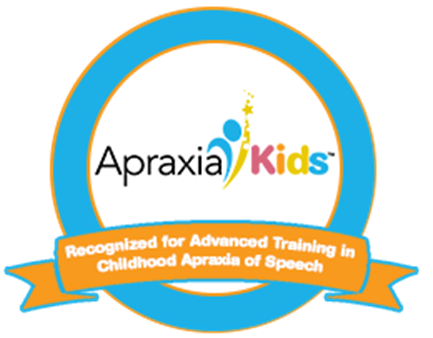Being a new mom is tough! You are getting to know your baby while everyone around you weighs in on what to feed your child, how to care for your child, and how to get your child to sleep. Now add to this experience the fact that you know something is wrong, but everyone around you insists that you just need to relax.
Meet Kristi, a friend from graduate school and fellow pediatric speech-language pathologist. Kristi had, like me, received some basic training on tongue and lip ties, but nothing could compare to going through the experience first hand.
Jocelyn: Gush to me about your child. Tell me how things have been going as a new mom.
J: Did you breast feed or bottle feed?
J. When did you first realize there was a problem?
As tongue ties are hereditary, I expected Neil to be tongue-tied so I was looking as soon as I met that sweet face and saw him crying.
Neil didn’t have the classic anterior tongue tie, like my husband, so I was a bit confused, as I was not as knowledgeable on tongue and lip ties until after I did my research once he was born, as to why he had a very slight v-shaped notch at the tip of his tongue and a dimpling of his tongue just beyond the tip. Later, I saw that his hard palate was a little higher and more narrow than I believed to be typical (but still not even moderate or severely high and narrow).
I also didn’t realize initially that when he cried, his tongue tip did not contact his alveolar ridge. Instead, there was a cupping of the tongue as the sides of his tongue cupped up while crying but did not elevate higher than the corners of his mouth. He also was a MARATHON nurser.
This took a while to realize as breastfeed babies frequently feed every 45 min-2 hours (that means if they feed every 45 minutes, it is 45 minutes from the BEGINNING of the first feed) so I knew that frequent breastfeeding was typical, but Neil LIVED on my breasts. The next points are HUGE…
- I DID NOT have ANY pain breastfeeding…EVER!!! (except for 2-3 days of thrush when he was 5 weeks old, also related to his tongue tie but not relevant at the moment) and
- He DID NOT have ANY difficulty latching, only occasional reflux.
- He also gained TONS of weight (after losing 7% of his body weight within the first week of his life-up to 10% is normal in breastfed babies-weighing just 1oz more than his birthweight by 10 days old).
Basically, Neil did not LOOK or fit the profile of an infant that had a tongue tie to ANYONE (more on that in the next question). Actually, the IBCLC in the university hospital we ended up having to deliver at due to preeclampsia at 40 weeks & 6 days told me that I seemed as though I was breastfeeding my 4th child (not my first like he is) based on how well everything looked!
NURSING BLISTERS ARE NOT NORMAL!
Most people including pediatricians tell you that they are normal. They are COMMON (and so are tongue ties), but NOT normal.
The biggest indicator of something being wrong was the incessant crying Neil did and the borderline diagnosis of “colic” he was provided. He wasn’t a true “colic” infant as he was easily soothed on the breast (whether that be that sucking was organizing for him, that he needed more time to adequately transfer milk, cluster feeds, or that the reflux he was experiencing was being soothed by the breastmilk which is like an antacid-even though he didn’t have a TON of reflux-I’m not sure which or all of the above).I don’t believe in “colic” and I believe that “colic” is often related to tongue ties and resulting aerophagia that looks like “just” reflux which infants are then overly medicated for. I also think that everything in their entire body becomes much tighter, especially within the head and neck, due to the tethers and that can create its own discomfort. It also took me the LONGEST time to realize that the “breastmilk” I heard hitting his tummy was actually AIR!
J: Who did you contact? What did they say?
I’m not sure if it was true for Neil because he continues to be “off the charts” but MANY breastfed babies with tongue and lip ties gain A LOT of weight because they are just consuming all of the letdowns.
Hormones play less of a role after 3-4 months when the breastmilk production regulates to meet the needs of the baby determined by how well the baby drains the breast at each feeding. It was also suggested that I have an overactive letdown or forceful letdown. . Babies without tongue and lip ties manage their mother’s letdowns without difficulty (choking on the breastmilk at the letdown).
J: How did Neil respond to treatment? What changes did you see?
K:My husband swears within the first 3 days he saw a completely different child (it took a little longer for me to see it) but he actually began not just falling asleep at the breast when he was done feeding, but staying awake and popping off! That happened the same day as the revision took place. I was in SHOCK! I heard that babies would do that but Neil had never done that. It was amazing. He became a much happier child.
J: Were you ever told that there wasn’t a problem? How did that make you feel?
K: Yes, but that just energized me to PROVE to myself that I was right. I was right that the tongue and possibly lip tie were causing severe gastric distress resulting in “colic” and needing to breastfeed frequently. He had a moderate-severe posterior/submucosal tongue tie and a moderate lip tie. I am fortunate the hospital did not determine the tie because they would have tried to use scissors only and not have done a complete revision.
The tongue and lip tie resulted in Neil having a weak latch and difficulty moving his tongue for adequate and safe milk transfer. He was taking in way too much air at each feeding. At 2.5 months of age, I met other mothers who had similar stories. They put me in touch with Dr. Scott Siegel, one of the two preferred providers for oral tethered issues in New York. I was given all of the validation I needed. We had his first revision when he was nearly 3 months old. This was important to me because if he was not adequately transferring the milk out of my breasts that my milk supply could seriously decrease after 3-4 months when Neil became relevant in regulating my breastmilk production and supply.
What made you pursue the second surgery?

I noticed at 6 months when he began solids that his tongue was not elevating to accept food he was placing in his mouth. As an SLP, I knew it did not look right. I was concerned that there had been reattachment in the healing process even though Dr. Siegel said there was not reattachment. We found out he had what they call a tie that was not visible, and was not evident until after the release of the posterior/submucosal tie. The second revision occurred while Neil was held in my husband’s lap (again he nursed within 5 minutes of the procedure.) This revision was AMAZING to see just how much more Neil’s tongue could move and ELEVATE. I was so happy!






0 Comments